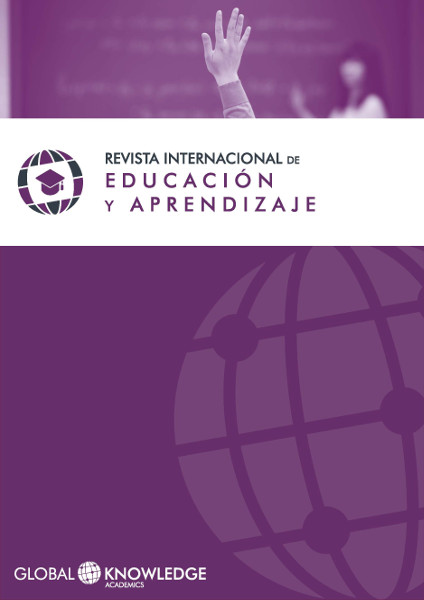Impact of Technological Applied Research in Adult Literacy, Unit case ITSON Guaymas, Mexico
DOI:
https://doi.org/10.37467/gka-revedu.v4.691Keywords:
Technological Literacy, Including Adult, Technological Skills, Training of Trainers, Participants SatisfactionAbstract
The article describes the inclusion of adults experience through technological literacy workshop with the participation of university students who serve as instructors. The course processes have been developed applied research on performance evaluation of student instructors, identification of knowledge and skills of adults, the identification of the level of satisfaction of course participants. In the evaluation of instructors was obtained as a result the definition of basic skills such as mastery, pedagogical qualities, instrumental skills, personal characteristics and knowledge of new languages. As for the knowledge and skills of adults they were found specific weaknesses in some issues of basic Word, Excel, Internet, social networking and Movie Maker. Development of Technological Literacy course at the Instituto Tecnológico de Sonora Campus Guaymas, has proved satisfactory for adult participants, with the main indicator learning achieved through the program sessions. It is concluded that the applied research in the course has been positive and have currently been implementing improvements that raise the quality of inclusion program.
Downloads
Global Statistics ℹ️
|
784
Views
|
288
Downloads
|
|
1072
Total
|
|
References
Calivá, J. (2009). Manual de capacitación para facilitadores. San José C.R.: Instituto Interameri-cano de Cooperación para la Agricultura.
Flores, C. (1999). Estándares y función docente. Universidad de Playa Ancha de Ciencias de la Educación. Valparaíso, Chile.
Gento, S. (2002). Instituciones educativas para la calidad total. Madrid: La Muralla.
González, I. (2015). El desempeño de los estudiantes/instructores en el taller de alfabetización Tecnológica. En González, I., Zavala, M., Rodríguez, A. y Vázquez, M. (Comp.). Aportes de inclusión al conocimiento y alfabetización tecnológica para adultos. Reducción de la brecha digital (pp.106 – 130). México: Tabook-ITSON.
Gros, B. y Contreras, D. (2006). La alfabetización digital y el desarrollo de competencias ciudada-nas. Revista Iberoamericana de Educación, 42, pp. 103-125. Recuperada de http://diposit.ub.edu/dspace/bitstream/2445/57176/1/567513.pdf
Knowles, M., Holton, E., y Swanson, R. (2001). Andragogía. El aprendizaje de los Adultos. Méxi-co: Alfaomega.
Marqués, P., (2008). Los docentes: funciones, roles, competencias necesarias, formación. Recupe-rado de http://www.educalidadparatodos.org.ve/web/wp-content/uploads/Los-docentes.pdf
Martín-Castaños, M., (2009). La educación de adultos. Revista digital innovación y experiencias educativas. No. 24, pp 1-8. Recuperada de http://www.csi-csif.es/andalucia/modules/mod_ense/revista/pdf/Numero_24/M_INMACULADA_MARTIN_1.pdf
Monereo, C. (2005). Internet un espacio idóneo para desarrollar las competencias básicas. En Mone-reo et al, Internet y competencias básicas. Aprender a colaborar, a comunicarse, a partici-par, a aprender (pp. 5-25). México: Graó.
Papalia, D., Sterns, H., Feldman, R., y Camp, C. (2009). Desarrollo del Adulto y Vejez. (3ra Ed.). México: McGraw Hill.
Rodríguez, A. (2015). Testimonios y nivel de satisfacción de los participantes del Taller de Alfabetización Tecnológica para Adultos. En González, I., Zavala, M., Rodríguez, A. y Vázquez, M. (Comp.). Aportes de inclusión al conocimiento y alfabetización tecnológica para adultos. Reducción de la brecha digital (pp.131 – 148). México: Tabook-ITSON.
Velazco, L. (2015). Desarrollo de conocimientos y habilidades tecnológicas del adulto en el taller de alfabetización. En González, I., Zavala, M., Rodríguez, A. y Vázquez, M. (Comp.). Aportes de inclusión al conocimiento y alfabetización tecnológica para adultos. Reducción de la brecha digital (pp. 59 – 89). México: Tabook-ITSON.
Zola de Garcés, S., Guevara, J., Naranjo, M., Pintado, J. C., Delgado, M., y Peralta, J. (s.f.). Planifi-cación de métodos andragógicos. Recuperado de http://www.cdts.espol.edu.ec/Proyectos/Proyectos%20en%20ejecuci%C3%B3n/Reactualizaci%C3%B3n%20Horno/Planificacion.pdf
Downloads
Published
How to Cite
Issue
Section
License
Those authors who publish in this journal accept the following terms:
-
Authors retain copyright.
-
Authors transfer to the journal the right of first publication. The journal also owns the publishing rights.
-
All published contents are governed by an Attribution-NoDerivatives 4.0 International License.
Access the informative version and legal text of the license. By virtue of this, third parties are allowed to use what is published as long as they mention the authorship of the work and the first publication in this journal. If you transform the material, you may not distribute the modified work. -
Authors may make other independent and additional contractual arrangements for non-exclusive distribution of the version of the article published in this journal (e.g., inclusion in an institutional repository or publication in a book) as long as they clearly indicate that the work was first published in this journal.
- Authors are allowed and recommended to publish their work on the Internet (for example on institutional and personal websites), following the publication of, and referencing the journal, as this could lead to constructive exchanges and a more extensive and quick circulation of published works (see The Effect of Open Access).













